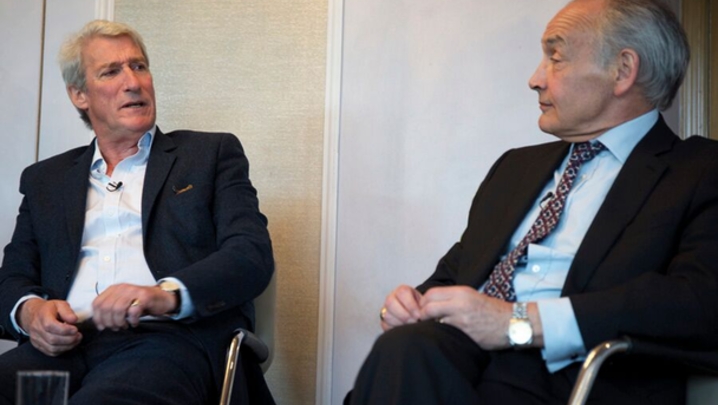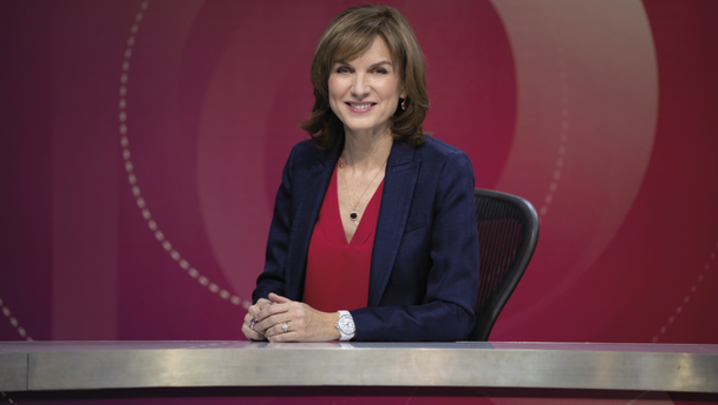Cambridge Convention 2015 Session Eleven: Nick Clegg locks swords with two senior TV journalists over the broadcasters’ coverage of the general election.
Did the broadcasters’ coverage of the last general election actually determine its outcome? This was one of the key questions asked during what session chair Martha Kearney called an “inquest” into how television handled the run-up to polling day on 7 May.
Former Liberal Democrat leader Nick Clegg certainly thought so. He argued that there was too much of a focus on the possibility of a Labour/SNP tie-up and this “had two very big consequences. One, it had a determining factor on the outcome.
“There’s absolutely no doubt in my mind that, seat after seat after seat, this growing alarm about the SNP/Labour tie-up and the amplification of the Tory message, and the way it was echoed in the broadcast media, terrified a lot of English voters and pushed them in a Conservative direction.
“The second, perhaps even more serious, consequence is that we now have a government in power that wasn’t subject to any meaningful scrutiny at all about what they might do if it were in power on its own. And that seems to me to be really significant.”
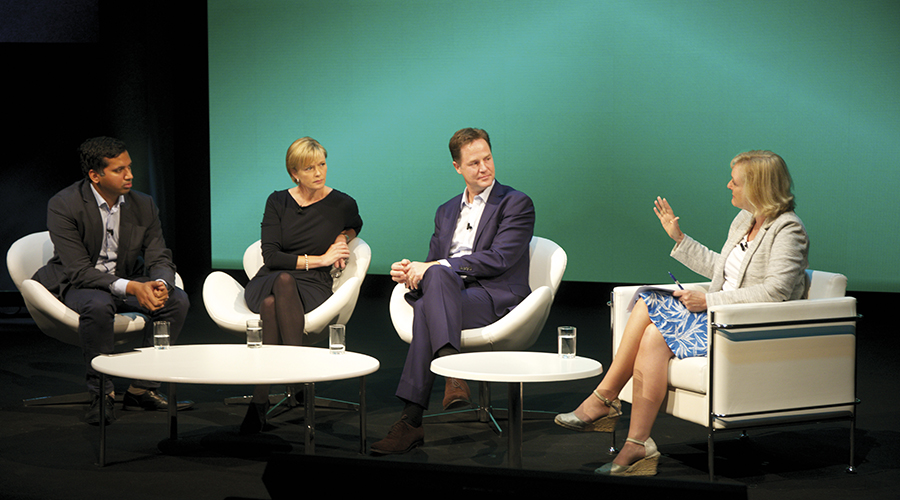
(Credit: Paul Hampartsoumian)
Clegg went on: “You have got a government that almost accidentally got into power. They didn’t expect it at all – they were never asked any searching questions… about what they would do if they were ever in power on their own and that is not healthy in a democracy.”
He acknowledged that “significant vested interests in the press were pushing” an agenda but claimed that, in the latter stages of the campaign, a lot of the coverage was “speculation… hypothesis, rather than fact. It was endless crystal-ball gazing about the future rather than talking to people about the decision they needed to make.”
ITV News at Ten presenter Julie Etchingham did not agree, saying she “could barely move for interviews trying to press the Conservatives” on the issue of welfare cuts.
“Similarly, Labour was being pressed on the issue of how much they might borrow. The scrutiny levels were there. There were very hard interviews.”
Clegg accepted that the other parties might not have wanted to answer those questions and said this was “not an exercise in finger pointing” but he thought that “the whole media and political elite did become completely absorbed about discussing hypothetical outcomes that didn’t happen”.
In a pre-recorded interview, Labour’s campaign strategist Tom Baldwin said that it had been the Tory agenda to make broadcasters think Labour was “devoted to the Labour/SNP coalition… because they needed to make us the risk”.
In another pre-recorded video, Downing Street Director of Communications Craig Oliver said: “Broadcasters managed to persuade themselves that the one result that actually would happen was impossible. A lot of people who should have been reporting the election wanted to commentate on it.”
Sky News Political Editor Faisal Islam was aghast and said that these interviews featured “more spin from spin doctors.… I can’t quite believe some of the things they said… both of them, frankly”.
He recounted a story of a day during the campaign when he wanted to speak to one party – he suggested that the audience guess which one it was – about record employment figures.
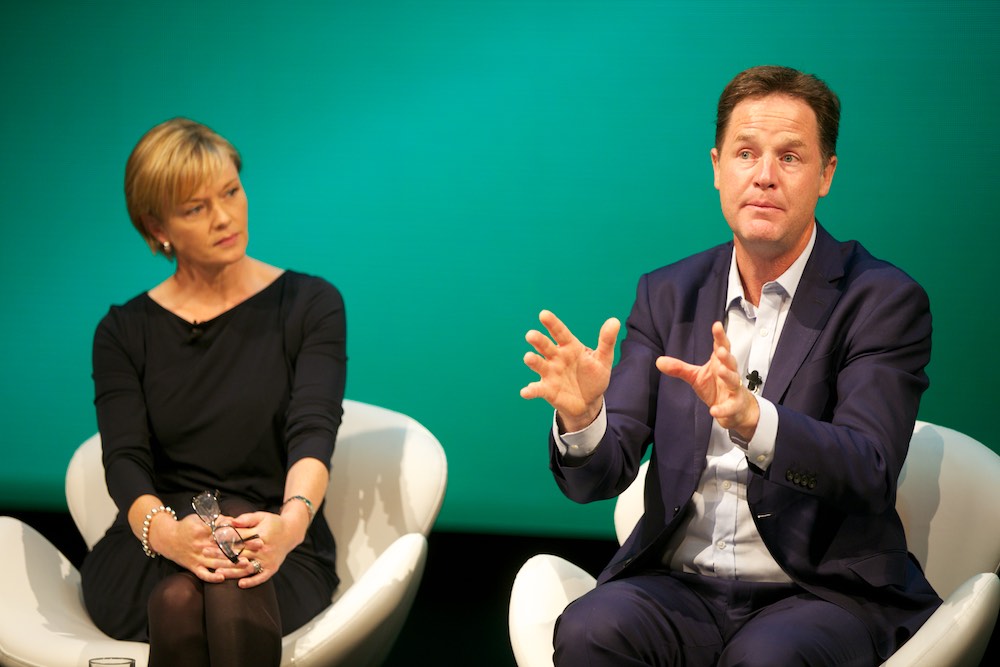
(Credit: Paul Hampartsoumian)
“I thought we should be covering this a bit higher as a dispassionate objective numbers story, it’s not biased…. The phonecall comes, I get in there first: ‘What about those job numbers?’”
He said the reply was: “What do you mean job numbers, why aren’t you reporting Labour/SNP?”
Islam went on: “It was a tactic… it was a successful tactic.” But he said that the other parties could have combated it more.
“In the one interview I did with David Cameron in the back of the coach, I got him to admit that there was one party leader standing for office in 2015 who had signed off a deal with the SNP, and that was him.
“If Labour can’t use that fact to fight him…. It’s not my job to do that. They didn’t play the game, if you like, well enough,” concluded Islam.
Etchingham thought that part of the reason the SNP narrative had “shaped” some of the coverage went back to the Scottish referendum. She argued that the broadcasters were not just responding to an agenda set by the newspapers or spin doctors.
Clegg disagreed with Oliver’s assertion that the issues had been drowned out: “For Craig Oliver, who I know a bit, to say that when… I know it wasn’t done intentionally but… basically, what happened was the massive amount of broadcast coverage devoted to the possible, hypothetical outcome of a Labour/SNP government was like giving the richest party in British politics, the Conservatives, hundreds of millions of pounds of additional attack-ad funding.”
The issue was “worth dwelling on”, said Clegg, because, “it had a determining effect on the outcome and it meant also that the government that was elected wasn’t rigorously
scrutinised [about] what it would do if it were in power”.
“I bet they were continuously ringing you saying, ‘Why don’t you focus on the SNP?’,” said Clegg to Islam, “That’s the way they got elected.”
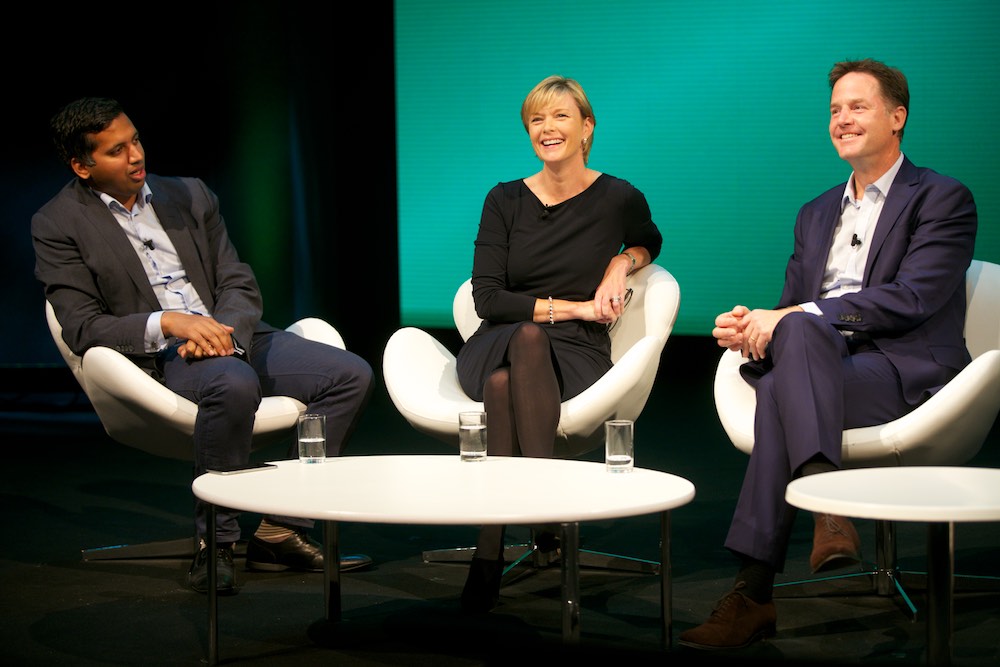
(Credit: Paul Hampartsoumian)
However, Islam pointed out that, at “Clegg’s manifesto launch, they were talking about how everyone knows there can’t be a majority government”.
Clegg thought there had been “so much bogus wisdom in hindsight”. He said that, in the south west of England, postal votes were cast two weeks prior to 7 May. The Lib Dems had canvassed those people before and after they voted and they were level-pegging or ahead.
Things changed after a concerted, “well-executed” campaign from the Tories of letters, emails and telephone calls targeting Lib Dem voters about the “risk to the economy because of Labour and everyone dancing to Alex Salmond’s tune”.
The former Deputy Prime Minister claimed: “The effect of it was massively amplified in people’s living rooms because of the coverage devoted to that hypothetical outcome. So that did have a material effect.”
According to a survey quoted by Kearney, 46% of TV stories about the election were about process.
Islam said there was more to it than just navel-gazing: “You’re thinking – what did we miss in 2010? Let’s nail it in 2015. There’s a little bit of that.
“There is no crystal ball. You can extrapolate past patterns and predict them forward. That does not mean that analysing trends… is bad or wrong. All parties were doing it. Our job is not to predict… but, if you like, to map out the contours of what’s changing.”
However, he added: “A little bit more humility is probably required, and an admission that we can’t actually predict the future.”
That was something Clegg did agree with: “Broadcasting is not soothsaying.” He went on: “I accept that newspapers have an axe to grind. Particularly at the moment, we’ve got some big vested interests in Britain where a preponderance are… right of centre… but broadcasters at election time are surely beyond everything else.
“They are there to scrutinise, interrogate, challenge politicians, to draw out for the public what the truth is… not to judge your own success on whether you got some hypothetical assumption about the future right. The future is unknowable and it’s so odd that people are now beating themselves up for having discovered that the future is not a fact until it happens.”
Even so, Clegg admitted that “everyone got swept up…. I’m just saying that… for one reason or another, the speculation on that particular outcome only helped one particular party to the exclusion of the others.”
And he concluded that politicians had to change how they campaign, too: “We are talking to ourselves in an echo chamber, where politics is becoming entertainment.”
The panellists were: the Rt Hon Nick Clegg MP; Julie Etchingham, Presenter, ITV News; and Faisal Islam, Political Editor, Sky News. The session was chaired by Martha Kearney, Presenter, The World at One, and produced by Ian Katz.
Election debates: the way ahead
The last-minute wrangling and politicking over this year’s general election debates must be avoided in 2020, said former Deputy Prime Minister Nick Clegg.
He pointed out that, in the US, an independent commission regulating presidential debates had been established so that, ‘at the beginning of each cycle, it promulgates rules… which the presidential candidates respect’.
Something similar should be set up in the UK to ‘drain this whole process of the politics and the argy-bargy and negotiation and the threat and counter-threat that disfigures all this’, Clegg argued.
He said that what happened this time, ‘was absolutely farcical for everyone concerned... the whole thing was hopeless. We’ve got to take all that backroom, cloak-and-dagger stuff out of it. I think that what you need is to have objective criteria as to who participates.’
ITV News Presenter Julie Etchingham said she was not involved in the negotiations for the debates but, ‘clearly, it would be far preferable to be able to concentrate on policy content and not wrangling over how a debate takes shape.
‘Whatever we need to do, it would be great to get it organised and done, so that there’s clarity about it, so that everybody knows where they stand. I do think they contribute an enormous amount.
‘There was great engagement on social media. And all of the debates contributed something really useful and beneficial.’
The BBC’s James Harding agreed that broadcasters need to make sure the debates ‘are managed properly and carefully in advance so that there’s not wrangling right at the last minute’.
RTS President Peter Bazalgette pointed out from the floor that broadcasters spent about a year of ‘sterile’ argument about the debates when, in the last week of the election campaign, ‘we discovered that we had a format that has worked brilliantly for 40 years. It was called Question Time.’
Election 2015: the BBC version
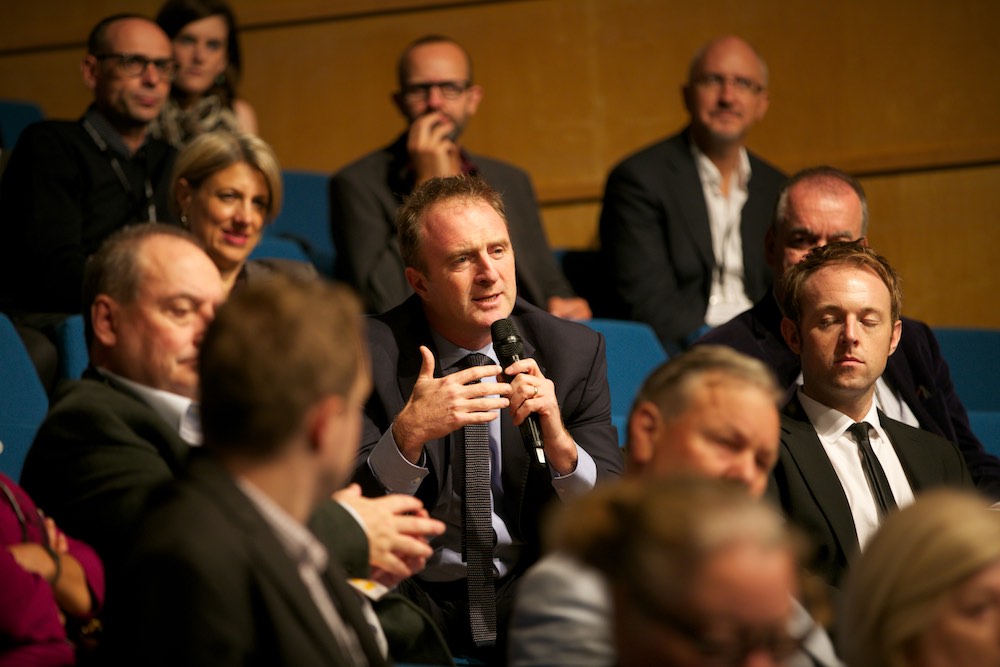
What did BBC Director of News James Harding think of Nick Clegg’s accusation that the broadcasters’ coverage, especially their concentration on potential coalitions, determined the outcome of the last general election?
‘Oh, deary me,’ was Harding’s first thought, when pointing out that it was his first election in TV.
‘I think that, if you look at 2015, it confounded the futurologists who said that television’s not the place where big political debate happens. Actually, it turned out that it was.’
He said that probably the biggest story of the campaign – David Cameron’s admission that he would not run for a third term – came from the BBC’s James Landale.
Julie Etchingham’s chairing of ITV’s seven-way debate was a ‘masterclass’ and Question Time’s pre-election edition from Leeds was ‘where you really heard from people what they thought and how they felt’.
Harding said: ‘There’s been a fair bit of “woe is us”.’ But it was ‘an extraordinary campaign’ and ‘there was an effort by broadcasters and journalists of all stripes to get at the big issues – welfare, cuts, the future budget.’
He added: ‘The fact [that these issues were] not addressed does not mean those questions weren’t asked. And every single political party had an interest in the coalition narrative.’
Harding said: ‘Clearly, there was too much “coalitionology”.… I think there are a couple of important reasons for that. We do tend to cover general elections with an eye to what happened last time. So I do think there’s a big issue, a big lesson there for us.’



